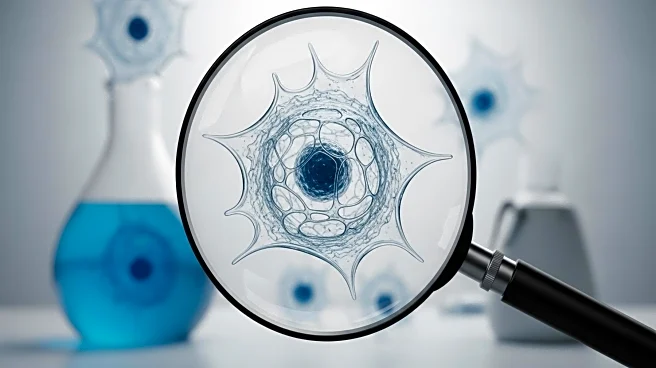What's Happening?
Professor Sir John Gurdon, a Nobel laureate renowned for his pioneering work in developmental biology, has passed away at the age of 92. Sir John was celebrated for his groundbreaking research on nuclear transfer in frogs, which addressed fundamental questions about genetic information retention during development. His work laid the foundation for significant advances in biomedical research, including stem cell biology, mouse genetics, and IVF. In 1991, he co-founded the Wellcome/CRUK Institute for Cell Biology and Cancer, later renamed the Gurdon Institute at the University of Cambridge, with Ron Laskey. Sir John's dedication to research continued into his 90s, and he was deeply committed to interdisciplinary collaboration.
Why It's Important?
Sir John Gurdon's contributions to science have had a profound impact on the field of developmental biology and beyond. His discovery that mature adult cells can be reprogrammed to an embryonic stem cell state, known as pluripotency, earned him the Nobel Prize in Physiology and Medicine in 2012. This breakthrough has paved the way for advancements in regenerative medicine and stem cell research, offering potential treatments for various diseases and conditions. His legacy continues to inspire scientists worldwide, and his work remains a cornerstone in the study of cell biology and genetics.
What's Next?
The scientific community is likely to continue building upon Sir John Gurdon's foundational research, exploring new applications in regenerative medicine and genetic research. The Gurdon Institute at the University of Cambridge will carry forward his vision, fostering collaboration between developmental biology and cancer biology. As researchers delve deeper into the mechanisms of pluripotency and cell reprogramming, new therapeutic strategies may emerge, potentially revolutionizing treatments for degenerative diseases and cancer.
Beyond the Headlines
Sir John Gurdon's work not only advanced scientific understanding but also raised ethical considerations regarding genetic manipulation and stem cell research. His legacy prompts ongoing discussions about the moral implications of genetic engineering and the potential for human enhancement. As the field progresses, scientists and policymakers must navigate these ethical challenges, ensuring responsible and equitable use of biotechnological advancements.










